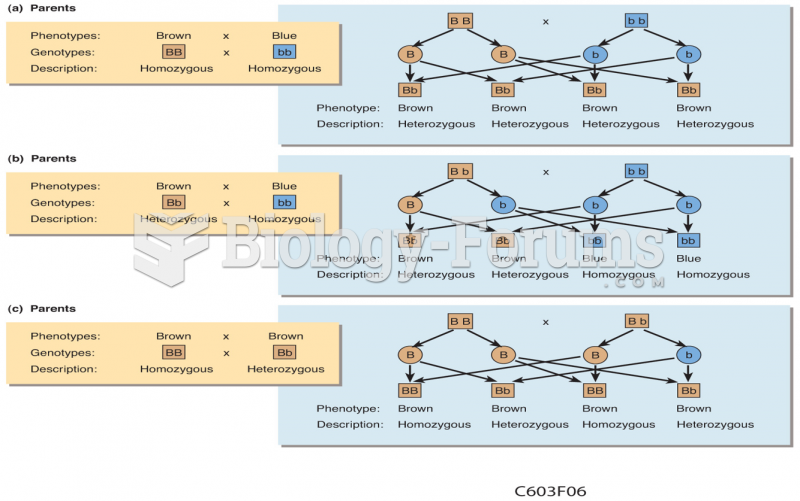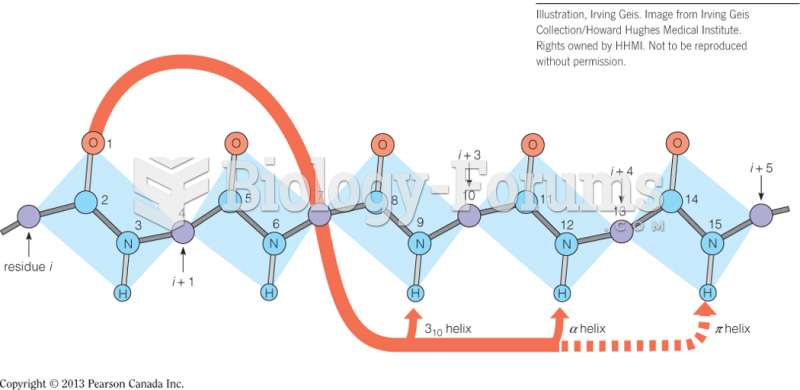|
|
|
Bacteria have flourished on the earth for over three billion years. They were the first life forms on the planet.
About one in five American adults and teenagers have had a genital herpes infection—and most of them don't know it. People with genital herpes have at least twice the risk of becoming infected with HIV if exposed to it than those people who do not have genital herpes.
Asthma occurs in one in 11 children and in one in 12 adults. African Americans and Latinos have a higher risk for developing asthma than other groups.
The Romans did not use numerals to indicate fractions but instead used words to indicate parts of a whole.
After 5 years of being diagnosed with rheumatoid arthritis, one every three patients will no longer be able to work.







